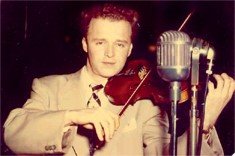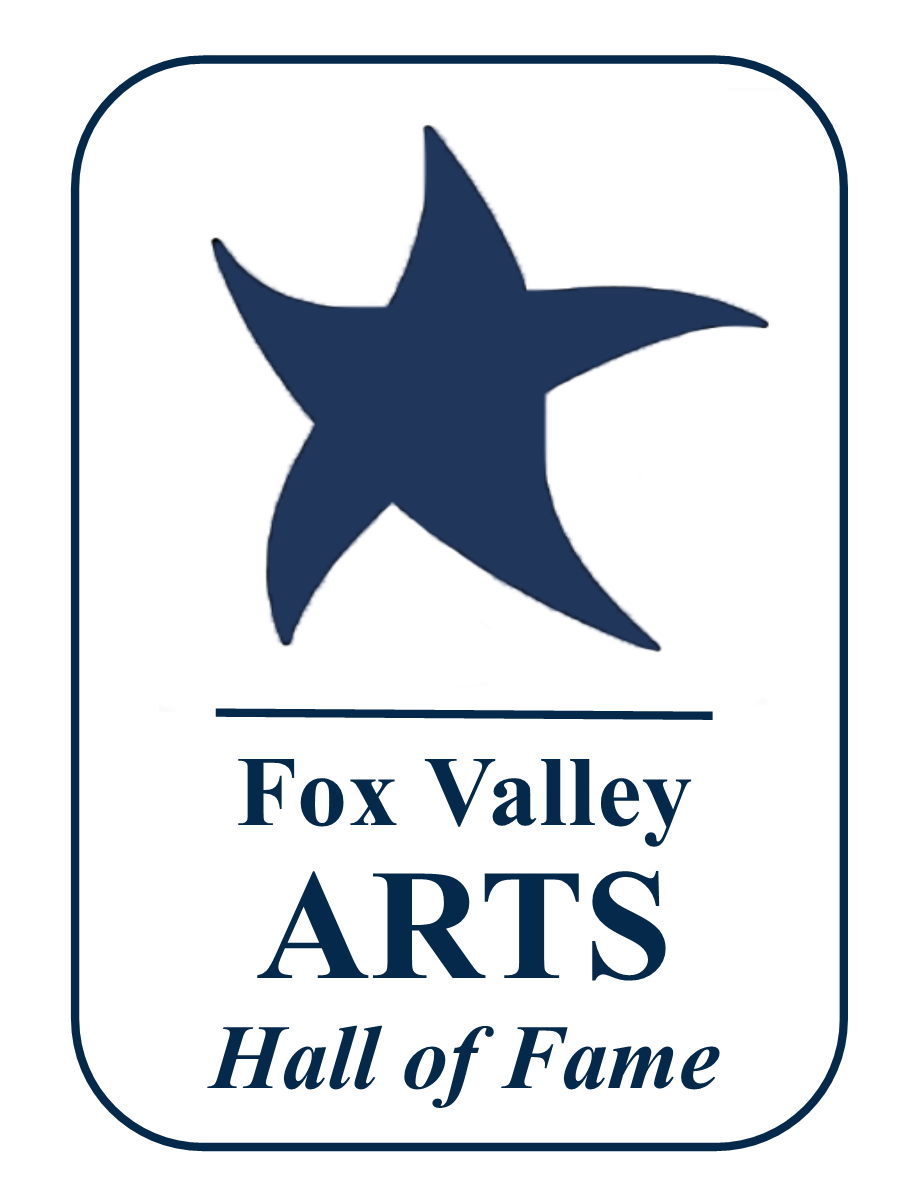
Inaugural Class of 2002
Robert “Bob” Olah
1924 - 2005
Performing Arts - Musician
Renowned violin, saxophone, and clarinet player
More than 60 years of performances with the 580th Army Air Force Band, Dick Jurgens Orchestra, Lawrence Welk Orchestra, and Wayne King Orchestra
Founder of Chardian Recording Company
Growing up in the Romanian enclave of Pigeon Hill in Aurora, Illinois, Bob Olah learned to love the soulful gypsy music his father played on the violin. Music was an important part of their home, and his parents, John and Valeria Denney Olah, saw to it that Bob had violin lessons, first with Tom Kish and then, at the age of 13, with Dr. Frederick Toeniges of DeKalb. While a student at St. Michaels' Grade School, he played his violin in the church choir. At the unheard-of age of 16, he was accepted into the Blackhawk Symphony (Aurora) and the DeKalb Symphony. At home, he experimented with his brother Albert's saxophone, and he quickly became a proficient on that instrument, too.
Six months after graduating from East Aurora High school (Class of 1942) Bob enlisted in the Army Air Corps and was playing the saxophone with the 580th Army Air Force Band. Just 18 years old, he soon entered a life of nonstop performances that developed his talents quickly. "Boy, I was the luckiest kid alive," Mr. Olah recalled. "I couldn't believe I was up there with all these established musicians. The fellow I bunked with was from the Guy Lombardo Orchestra, and all around me there were real professionals from bands like Benny Goodman's and Vaughn Monroe's. I watched them like a hawk and worked my head off practicing." He also learned to play the clarinet. Soon he was promoted to sergeant and put at the head of a 10-piece dance band that played at officers' clubs, service clubs and USO shows around the country. He never thought to tell anyone about his violin training until the day that a shipment of violins arrived on base in Meridian, Mississippi, by mistake. Bob unpacked one and started playing. Within minutes he was in the warrant officer's office, getting chewed out. "He was mad because I had never mentioned I could play the violin," Bob said. "He said to me 'Kid, don't you realize that a violin/saxophone combination is what every band leader wants?'" From then on he played violin also, and even became the favorite of the colonel's wife, who requested him and his violin every Sunday afternoon for her tea parties.
When he left the Army in 1946, he returned to Aurora and played at the Carousel Room in the Aurora Hotel and the Sky Club in the Leland Hotel six nights a week. Then came a call from the highly-regarded Dick Jurgens Orchestra in Chicago. "All of Dick Jurgen's arrangements called for a saxophone/clarinet/violin player," according to Bob. "That warrant officer was right. And let me tell you, that was my big break." It didn't hurt that he played baseball player, too. It was an era when inter-band sports rivalries were intense, and the fact that he was a left fielder clinched the job for him.
Just 22 years old, Bob traveled coast to coast playing in the most famous theatres and ballrooms in America and doing live national radio broadcasts, and having the time of his life. "That was heaven on earth," he said. "A $125 a week guaranteed, seeing the country, pretty girls at every job. And the guys were the best. You get really close to people when you travel like that and we were a wonderful family."
In 1951 Bob, then 26, was recruited by another band leader, who saw an opportunity to bring a big band show to that new invention, television. The leader was Lawrence Welk and the next thing he knew, Bob was smiling for the camera in California, performing violin solos, and playing lead alto saxophone and clarinet. "Mr. Welk knew exactly what he wanted and he used to tell everybody else what they were going to perform," he recalled. "But he always let me pick my own violin solos. I used to rib the other guys about that." He chuckled over one incident on The Lawrence Welk Show. Mr. Welk introduced him and said, "Bob, tell us a little bit about yourself." "Well, Mr. Welk," came the answer, "I'm from a small town in Illinois, Aurora." "Boy, was that the wrong thing to say!" Bob said. "I heard about it for years afterward. People from Aurora would say 'What do you mean, small town!'"
After the death of his mother, and with the popularity of big bands on the wane, Bob returned to Aurora to juggle his love of music with a career as a design draftsman. He worked for companies like Thor Power Tool, Fermilab, Lyon Metal and All-Steel by day, and played with his own band, Bob Olah and His Orchestra by night. They played every Saturday night at the Phoenix Club in Aurora, as well as hotels and ballrooms around the entire Chicago area. In the mid-1970s he toured with Wayne King, as concert master and first violinist, playing the Willowbrook Ballroom and one-night stands around the country. About that time he began to compose music and started his own recording company, named Chardian, after his daughters Charmaine and Diane. He also performed as a duo with Aurora pianist Jeane Weiss, and began yet another career as a strolling violinist.
Bob resided in North Aurora, Illinois, until the time of his death. He continued to challenge his creativity by arranging his own compositions, Broadway show tunes, and popular music. He recorded both the orchestra parts and the violin solos. He also made special appearances at big band and orchestra concerts throughout the U.S., playing his 150-year-old French violin and imparting that sense of Romanian gypsy soul, which he learned as a boy, to his delighted listeners.






